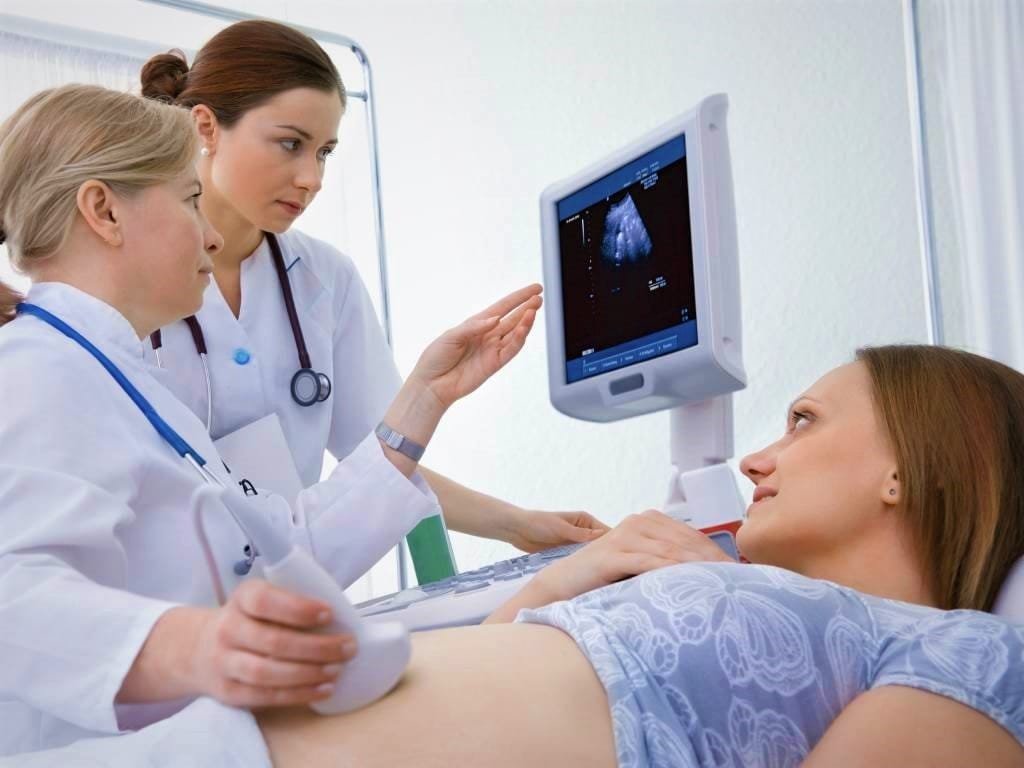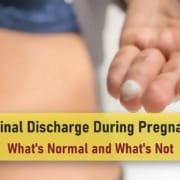Ectopic Pregnancy: Symptoms, Causes, and Treatments
Pregnancy is often a time of excitement and anticipation, but sometimes complications can arise. One such complication is ectopic pregnancy, a condition that affects about 1–2% pregnancies worldwide. While relatively rare, ectopic pregnancies can pose serious health risks and should be understood by anyone who is or may become pregnant.
What is an Ectopic Pregnancy?
An ectopic pregnancy occurs when a fertilized egg implants itself outside of the uterus (womb). Most ectopic pregnancies occur in the fallopian tubes, but they can also occur in other locations such as the ovaries, cervix, or abdominal cavity.. The fallopian tubes are the narrow passageways that connect the ovaries to the uterus. Unfortunately, if an egg becomes lodged in a fallopian tube, it cannot develop into a viable pregnancy, and continuing the pregnancy can pose significant health risks to the mother.

Ectopic Pregnancy Causes
In many cases, the exact cause of an ectopic pregnancy isn’t clear. However, certain factors can increase the risk:
- Fallopian Tube Issues: Problems with the fallopian tubes, such as narrowing or blockages, can trap the fertilized egg.
- Pelvic Inflammatory Disease (PID): This inflammation of the female reproductive system, often caused by sexually transmitted infections, can increase the risk.
- Previous Ectopic Pregnancy: If you’ve had one ectopic pregnancy, your risk of having another is about 10%.
- Fallopian Tube Surgery: Previous operations on the fallopian tubes, including unsuccessful sterilization procedures, can increase the risk.
- Fertility Treatments: In vitro fertilization (IVF) and medications that stimulate ovulation can slightly increase the chances of an ectopic pregnancy.
- Contraceptive Failures: While rare, becoming pregnant while using an intrauterine device (IUD) or intrauterine system (IUS) for contraception increases the likelihood of an ectopic pregnancy.
- Smoking: Tobacco use has been linked to an increased risk of ectopic pregnancies.
- Age: Women over 35 have a higher risk of ectopic pregnancy.
While you can’t always prevent an ectopic pregnancy, you can take steps to reduce your risk. Using condoms when not trying to conceive can protect against sexually transmitted infections that may lead to PID. If you smoke, quitting can also help lower your risk.
Ectopic Pregnancy Symptoms
Ectopic pregnancies don’t always cause noticeable symptoms, and in some cases, they’re only detected during routine pregnancy scans. However, when symptoms do occur, they typically develop between the 4th and 12th week of pregnancy. It’s important to be aware of these potential signs:
- Missed Period and Positive Pregnancy Test: Like a normal pregnancy, an ectopic pregnancy can cause you to miss your period and result in a positive pregnancy test.
- Vaginal Bleeding: This bleeding often differs from a regular period. It may start and stop intermittently and could be watery and dark brown in color. Some women mistake this for a normal period and don’t realize they’re pregnant.
- Abdominal Pain: You might experience pain in your lower abdomen, typically on one side. This pain can develop suddenly or gradually and may be constant or come and go.
- Shoulder Tip Pain: An unusual pain where your shoulder ends and your arm begins can be a sign of internal bleeding caused by an ectopic pregnancy.
- Discomfort During Bowel Movements or Urination: You might feel pain or pressure in your bottom when having a bowel movement, experience pain while urinating, or have diarrhea.
It’s important to note that some of these symptoms, like changes in bladder and bowel patterns, can be normal during pregnancy or caused by other conditions. However, if you experience a combination of these symptoms and think you might be pregnant, it’s crucial to seek medical advice promptly.
When to Seek Emergency Help
In rare cases, an ectopic pregnancy can grow large enough to rupture the fallopian tube. This is a medical emergency that requires immediate attention. Signs of a rupture include:
- Sudden, sharp, and intense abdominal pain
- Feeling very dizzy or fainting
- Nausea
- Appearing very pale
If you experience these symptoms, call emergency services or go to the nearest emergency department immediately. A ruptured fallopian tube is life-threatening but can be treated if addressed quickly.
Diagnosing an Ectopic Pregnancy
Diagnosing an ectopic pregnancy can be challenging because the symptoms can mimic other conditions. If you visit your healthcare provider with symptoms of an ectopic pregnancy, they will likely:
- Conduct a Physical Examination: Your doctor will examine you and may perform a pregnancy test if you haven’t already taken one.
- Refer You for Further Testing: If you have symptoms of an ectopic pregnancy and a positive pregnancy test, you may be referred to an early pregnancy assessment service for additional tests.
The main diagnostic tools for ectopic pregnancy include:
- Transvaginal Ultrasound: This involves inserting a small probe into the vagina to create detailed images of your reproductive system. It can often show whether a fertilized egg has implanted in one of your fallopian tubes.
- Blood Tests: These measure the levels of human chorionic gonadotropin (hCG), a pregnancy hormone. In ectopic pregnancies, hCG levels tend to be lower and rise more slowly than in normal pregnancies.
- Laparoscopy: If other tests are inconclusive, your doctor may recommend this minimally invasive surgical procedure. Under general anesthesia, a small incision is made in your abdomen, and a thin viewing tube is inserted to examine your fallopian tubes and uterus directly.
Treatment Options for Ectopic Pregnancy
Unfortunately, it’s not possible to save an ectopic pregnancy. The developing embryo cannot survive outside the uterus, and continuing the pregnancy poses serious risks to the mother’s health. Treatment is necessary to remove the pregnancy before it grows too large. The main treatment options are:
- Expectant Management: If you have no symptoms or mild symptoms and the pregnancy is very small or can’t be located, your doctor might recommend close monitoring. This approach involves:
- Regular blood tests to check that your hCG levels are decreasing
- Instructions on what to do if you develop more severe symptoms
- Guidance on managing any pain or bleeding you experience
The advantage of this approach is that you avoid the potential side effects of medical or surgical treatments. However, there’s still a small risk that your fallopian tube could rupture, potentially requiring emergency treatment.
- Medical Treatment: If an ectopic pregnancy is diagnosed early and expectant management isn’t suitable, your doctor might recommend treatment with a medication called methotrexate. This drug works by stopping the pregnancy from growing. Here’s what you need to know about methotrexate treatment:
- It’s administered as a single injection into your buttocks
- You won’t need to stay in the hospital, but you’ll need regular blood tests to monitor the treatment’s effectiveness
- In some cases, a second dose may be necessary
- You’ll need to use reliable contraception for at least 3 months after treatment, as methotrexate can harm a developing fetus if you become pregnant during this time
- You should avoid alcohol until your doctor says it’s safe, as drinking soon after receiving methotrexate can damage your liver
Potential side effects of methotrexate include mild abdominal pain, dizziness, nausea, vomiting, and diarrhea. There’s also a small risk of your fallopian tube rupturing after treatment, so your doctor will advise you on what symptoms to watch for.
- Surgical Treatment: In most cases, keyhole surgery (laparoscopy) is performed to remove the ectopic pregnancy. This procedure involves:
- General anesthesia
- Small incisions in your abdomen
- Insertion of a viewing tube (laparoscope) and small surgical instruments
- Removal of the entire fallopian tube containing the pregnancy if your other tube appears healthy, or attempted removal of just the pregnancy if possible
Removing the affected fallopian tube is the most effective treatment and isn’t thought to significantly reduce your chances of becoming pregnant in the future. Your doctor will discuss this with you beforehand and obtain your consent.
Most women can leave the hospital a few days after surgery, but full recovery may take 4 to 6 weeks.
In emergency situations where the fallopian tube has already ruptured, you’ll need immediate surgery. This may be done by operative laparoscopy or a larger incision in your abdomen (laparotomy) to stop the bleeding and repair the fallopian tube if possible.
After either type of surgery, if your blood type is RhD negative, you’ll receive a treatment called anti-D rhesus prophylaxis. This helps prevent rhesus disease in future pregnancies.
Emotional Impact and Recovery
Experiencing an ectopic pregnancy can be emotionally challenging. It’s normal to feel a range of emotions, including grief, disappointment, and anxiety about future pregnancies. Remember that it’s okay to seek support from your healthcare provider, a counselor, or support groups specializing in pregnancy loss.
Physical recovery time varies depending on the treatment you receive. Your healthcare provider will give you specific instructions on when you can resume normal activities and when it’s safe to try to conceive again if you wish to do so.
Can I Get Pregnant After an Ectopic Pregnancy?
Having an ectopic pregnancy doesn’t mean you can’t have a successful pregnancy in the future. Many women go on to have healthy pregnancies after experiencing an ectopic pregnancy. However, it’s important to be aware that your risk of having another ectopic pregnancy is slightly increased.
If you become pregnant again, inform your healthcare provider about your history of ectopic pregnancy. They may recommend early scans to confirm that the pregnancy is developing in the uterus.
Conclusion
Ectopic pregnancy is a serious condition that requires prompt medical attention. While it can be a distressing experience, understanding the signs, symptoms, and treatment options can help you seek timely care and make informed decisions about your health. Remember, if you experience any symptoms that concern you during pregnancy, don’t hesitate to contact your healthcare provider. Your health and well-being are paramount, and medical professionals are there to support you through all aspects of your reproductive health journey.










